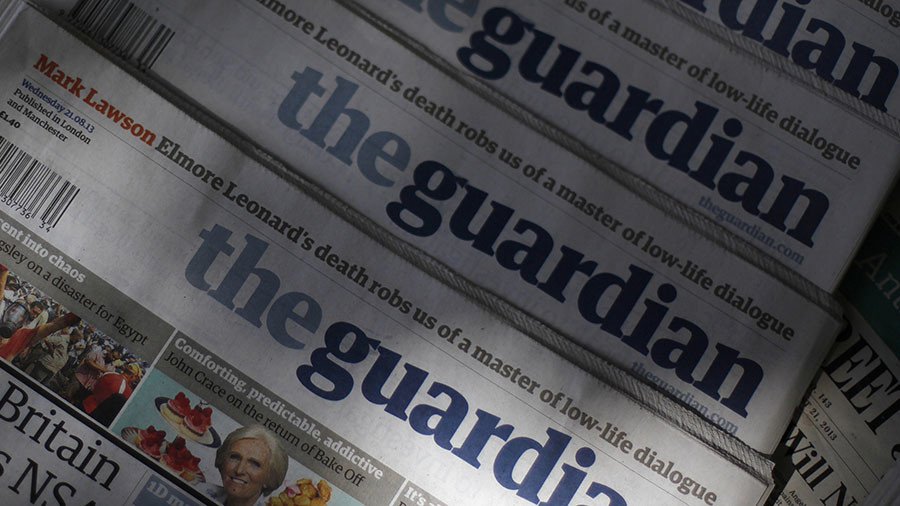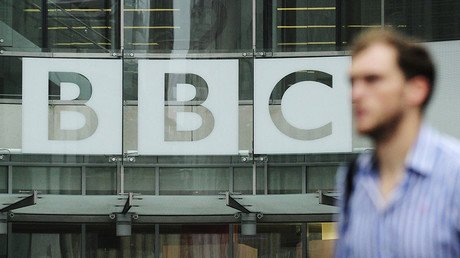I spent a week reading the Guardian, so you didn’t have to

Formerly a socialist-leaning newspaper from provincial Manchester, today’s Guardian is the London-based mouthpiece of Britain’s Oxbridge-educated Liberal elite. After reading its website for a week, I’m wondering if this is the best all that expensive education can produce?
According to its fans, the Guardian is the world’s leading “progressive” news outlet. A place full of latter-day Sydney Schanbergs shining light where darkness prevails. They contend it stands apart from the corporate press, due to being controlled by the Scott Trust, and cite its open-access website as proof of its commitment to freedom of information. Successful campaigns on gay marriage and transgender rights are also used to illustrate how the paper often captures the zeitgeist.
However, its detractors have a different point of view. Spewing bile at “Guardianistas” and the “Grauniad” itself, they brand it an issues-led rag which nobody actually reads. They correctly point out that the Guardian ‘boasts’ the lowest daily sale of any UK national newspaper. This stood at 156,756 copies in January of this year. By contrast, the conservative Daily Mail still flogs 1,511,357 a day, on average. The Mail also trumps the Guardian online, when it comes to popularity.
Guardian online, which also uses content from its Sunday sibling The Observer, was launched in 1999 and used to be known as “Guardian Unlimited.” The name, which sounded like a 90’s pop song, was quietly dropped. Today the site is a strange hybrid of genuinely excellent sports coverage, often overblown features that pander to liberal obsessions, a one-note comment section and the odd bit of breaking news.
After a week, you quickly learn the Guardian’s worldview: Donald Trump, straight men, Christmas, and Brexit are all considered to be really bad. Meanwhile, Vladimir Putin and Russia are opprobrious, malevolent and reprehensible. Good things include unfettered immigration, mixed-sex toilets, and Tony Blair.
Divided loyalties
At the same time, the Guardian seems to oppose the British royal family, but still endlessly writes about their travails. It appears to be open to changing its stance on the future of the monarchy provided a future King comes out as gay. Or if Prince Harry starts a trend of Windsors marrying people of color. Or both.
Now, I’m a fairly open-minded and tolerant fellow, but a couple of days into this experiment, I was on the verge of switching to the Daily Express or Breitbart for a bit of balance because the Guardian is equally biased, from the opposite end of the spectrum, as those widely derided outlets. And its messaging is just as relentless.
Try some of these headlines, from the opinion section, for size:
“End all immigration controls - they’re a sign we value money more than people”
“Would a gay monarch cure the church of its homophobia”
“If Meghan Markle represents the “mixed-race” community, what about me?” (a lot of Guardian articles start from the theme of 'what about me?')
“Can Harry and Meghan make Britain whole again”
And this example. Where neo-liberalism is explained by blaming long-dead people, who'd never heard of Margaret Thatcher:
“How Neolithic farming sowed the seeds of modern inequality 10,000 years ago.”
Followed by a piece passing the buck for climate change to a continent which largely came to the industrial revolution more than a hundred years after England.
“The West can’t fix the climate crisis. Asia will have to do it.”
But this is only the political stuff. When we move onto “identity” issues it gets even worse:
“The “arm vagina” - Hollywood’s latest form of female self-flagellation”
“To those who oppose gender-neutral toilets: they’re better for everybody”
“My daughter needs plastic surgery - how can I tell her”
“Emma Cline’s plagiarism suit - just another story of a man acting terribly” (because it’s"the latest example of men thinking women owe them it all")
“My problem with Viagra? It feeds men’s obsession with macho performance.”
And my personal favorite: “Of course pets need Christmas presents - but why get swanky with them.” Presumably, because expensive gifts may distract Fido and Fluffy from understanding the true meaning of Christmas.
Talking down
Remember the above is only a selection from one week, but consuming this sort of nonsense day in, day out for a few years, has to have a serious effect on mental well-being. An acquaintance of mine in Ireland used to describe the Guardian as "the paper for people a little bit wrong in the head," but it’s hard to know whether they were born that way or excessive exposure to the "Graun" caused the malaise.
The Guardian doesn’t restrict itself to social and political issues, though. It also tries to lecture its readers on more trivial matters, like how to eat beans on toast. Because these numpties would insist on an etiquette or way to "correctly" eat the peasant’s food.
Only the @guardian would insist on an etiquette or "way to correctly" eat the peasant's food. pic.twitter.com/WsmrmBN2P1
— Bryan MacDonald (@27khv) December 11, 2017
Toward the end of my week, I was searching for an article that perfectly displayed the Guardian’s relentless bias. And then the bleeding hearts of King’s Cross dropped a gift into my lap, by publishing a hilariously one-sided story from my regular beat, which is Russia.
The Moscow correspondent had visited Siberia to follow Russian protest leader, anti-corruption campaigner and Western-media darling Alexei Navalny on his tour of the country. And his, predictably, gushing profile was based on the writer’s conversations with Navalny's young supporters in the town of Kemerovo.
The standpoint chronicles how the “opposition politician’s campaign gathers steam.” Which, given Navalny is only polling at 2 percent in Russia, is like editorializing from a parallel universe. The text falsely presents him as a liberal, while ignoring his hardline ultra-nationalist views. Which fits with the Guardian’s long-standing habit of presenting all of Putin’s opponents as saints, no matter their real backgrounds. A fetish which sees bandit capitalists and corrupt ex-officials, who have done a runner with their filthy lucre, rebranded as modern-day Sakharovs.
Furthermore, when describing a meeting staged by “Ksenia Pakhomova, a bright-eyed, garrulous 23-year-old” the author admits how “all but one of the eight attendees was under 18.” Which is the legal age for voting in Russia. Now, forgive me for using common sense, but what sort of editor regards feedback from kids who can’t even cast ballots as a legitimate way of analyzing the political situation in any country? And can you imagine the ridicule RT would receive if it used kids from a secondary school in Yorkshire, who are concerned about the environment, to suggest the UK Green Party's campaign was "gathering steam."
This is the Guardian specializing in the triumph of cynicism while accusing Russian media of spreading “fake news” and railing against those it says “deny the possibility of objectivity.” Touche!
The statements, views and opinions expressed in this column are solely those of the author and do not necessarily represent those of RT.

















